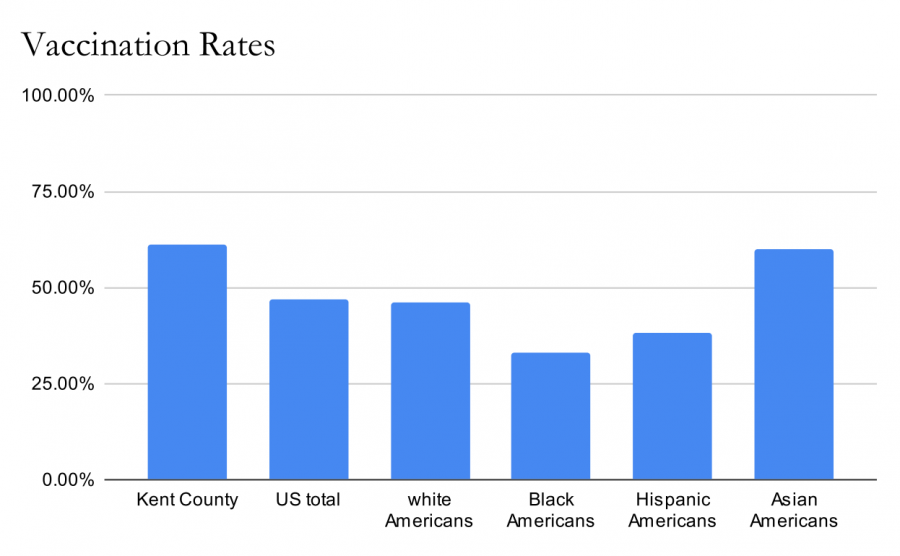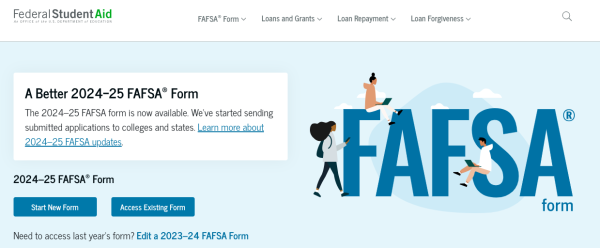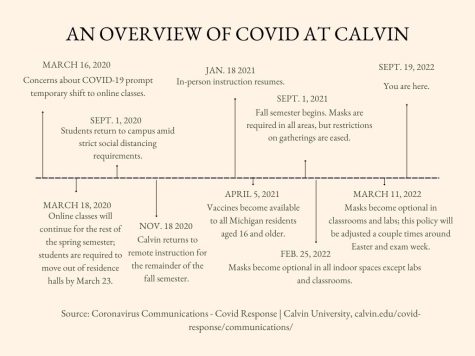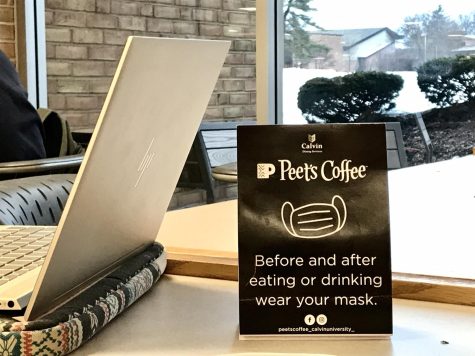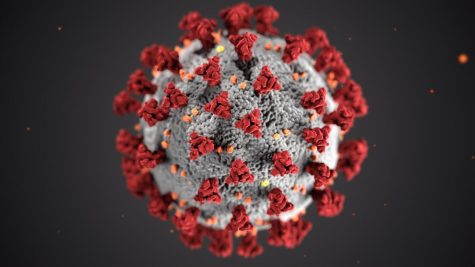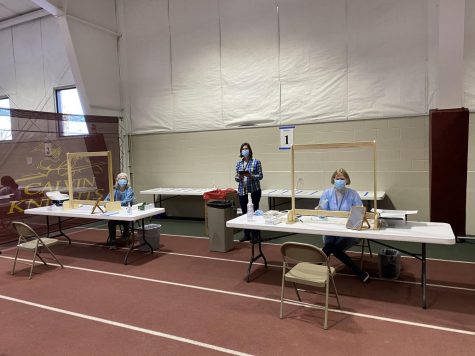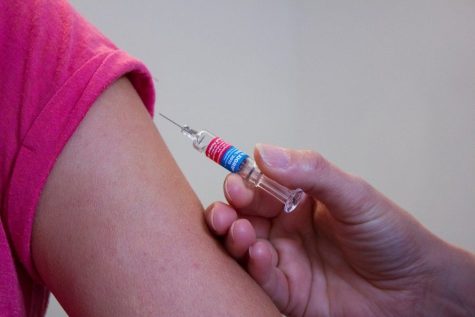Students and professors partner with nonprofit to promote vaccination
Data compiled from the CDC and Kaiser Family Foundation.
From June to December 2021, eleven Calvin students will work with Interfaith Youth Core (IFYC) to improve vaccine trust and accessibility in Kent County, where 61 percent of residents have received at least one dose of the vaccine (as of June 16, 2021). These students come from Calvin’s psychology, nursing, and public health programs, and they will each receive a $1500 stipend for their efforts. Julie Yonker, professor of psychology and public health, and Katie Kunnen, assistant professor of nursing, will serve as the students’ mentors.
Despite the massive push to vaccinate the American public, many Americans have not yet received the COVID-19 vaccine. Some people face barriers to access, and distrust lingers. According to data from the Kaiser Family Foundation (KFF), Black and Hispanic people consistently receive less than their share of vaccines.
To address these issues, IFYC, a nonprofit based in Chicago, created the Faith in the Vaccine Ambassadors Project to “leverag[e] religiously diverse communities to advance a common good.” On college campuses across the nation, selected students and educators will use their community connections to promote the COVID-19 vaccine. Calvin is one of these campuses.
When Yonker originally heard about the project, she was drawn to it despite her busy schedule. “My plate was super full. I did not need anything added to my plate,” Yonker laughs. “But I was thinking, if I’m going to impact public health, now is the time. This can’t wait. And, you know, in health psychology, I’m teaching about COVID, I’m teaching about vaccines. And I’m like, okay, I’m preaching this. I need to walk the talk and get involved.”
For Kunnen, her support of the COVID-19 vaccine is informed by both her faith and her scientific knowledge. “I sometimes feel that if you draw on the [idea of] ‘I’m vaccinated because I care,’ it’s almost like you’re trying to monopolize compassion,” says Kunnen. “But that is truly—from a scientific perspective—why I got vaccinated, because I know that it’s important for herd immunity and protecting other people. That is, in my mind, loving my neighbor.”
Furthermore, the variants are a point of concern. “Somebody classified them as ‘scariants’—and they are scary!” says Yonker, citing the severity of the Delta variant. But as more people get vaccinated and the community as a whole moves toward herd immunity, the prevalence of these variants is expected to decrease accordingly.
As Kunnen notes, vaccination rates in places like the United States have ripple effects across the globe. “The quicker we get vaccinated and reach herd immunity, the quicker we protect those who are most vulnerable: our third world countries, because they’re going to get access to the vaccinations last,” she said. “If the virus continues to mutate because we haven’t achieved herd immunity, they will be the ones who bear the brunt of the effects. That, to me, is tragic.”
The project is still in its earliest stages. The students completed their initial training on June 10, and training on conflict resolution and communication commenced on June 21. Kunnen will also teach students the skill of motivational interviewing, which she learned by working as a nurse practitioner. “We know that just coming at people with facts is not going to change their minds,” she said. “Just starting conversations, listening, empathizing and then asking those motivational questions will probably be the greatest way to make an impact.”
Preliminary plans include conducting an assessment to see what the Grand Rapids community wants. “That’s really always the first and best place to start,” says Kunnen. “It’s not going to go very well if you don’t take in the voices of those you’re trying to serve.” The ambassadors are currently hoping to reach adolescents and young adults—who are currently vaccinated at lower rates than most of the population—as well as underserved populations. Yonker says that they plan to work in neighborhoods with lower vaccination rates, where they will potentially partner with local faith organizations. On campus, too, there are plenty of opportunities for outreach: as of May 2021, approximately 35 percent of Calvin students were unvaccinated, based on data provided by the COVID Response Team.
For the student ambassadors, this is a unique opportunity. “What’s nice for the students is for them to apply the things they’ve been learning in their classes,” Yonker says. “It’s not just this theoretical knowledge that they’re gaining. It’s a very practical public health way to impact our community.”



